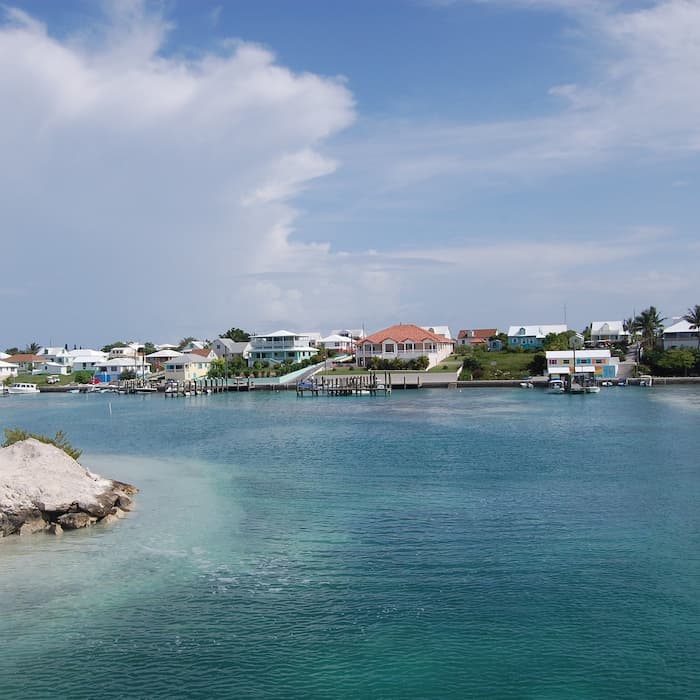Company Profiles
Equity Bank Bahamas Positions For Jurisdiction's Resurgence

The Caribbean jurisdiction has seen its ups and downs, and now appears to be on a growth trajectory. A bank that has stayed the course, with a focus on particular core offerings, talks to this news service.
A bank operating in the Bahamas finds that after what had been a turbulent period for the jurisdiction, a big improvement in the Caribbean country’s fortunes means that there is a wide gap in the market for its services.
Demand for the services of Equity Bank Bahamas Limited, such as deposits and custody, is “very strong,” the chairman of the bank, Ivylyn Cassar (pictured below), told this publication recently. Europe and Latin America remain the key markets for clients, she said.

Ivylyn Cassar
The bank can capitalize on the Bahamas being removed by the European Union earlier in 2024 from a "gray list," defined as “non-cooperative jurisdictions for tax purposes.”
The EU had added it back on this list in October 2022 after having removed it two years earlier.
As a result of the stringent rules that the country imposed to turn things around, some banks left the Bahamas. As far as Equity Bank Bahamas was concerned, this meant that its strengths shone through more brightly.
“That created an opportunity for the bank. Our business is growing and very profitable for us,” Cassar said.
Equity Bank Bahamas Limited bank prides itself on its traditional approach, although it is internally developing digital offerings through its affiliate Liongate Bahamas, and looking at areas such as AI, she continued.
The bank was founded in July 1985, initially as a trust company until obtaining a banking license in 2014. Headquartered in Caves Village Nassau Bahamas, it has 70 employees working in the group. Banking accounts form half of the total group revenue, with 25 per cent each coming from trust and corporate work, and investment funds of private clients. In 2022, it started to develop business lines for local clients, adding to its international book of business.
Equity Bank Bahamas is owned by Cassar, Dillon Dean (CEO) and the late Gilbert Cassar. The owners hold their stake via a holding company called Equity Group International (EGI). Other senior figures include: Sterling Quant, James Palacious, and Ken Kerr, independent non-executive directors (INEDs); Christopher Lunn, non-independent director (NED); Kim Thompson, executive director (ED) of trust and corporate for Equity Bank Bahamas and CEO of Equity Bahamas Limited; Vanessa Coleby, senior vice president of trust; Michael Dean, CEO of Equity Investment Funds Services and NED of Equity Bank Bahamas Limited; and Gavin Cassar, NED of EGI.
Experience
As far as Ivylyn Cassar is concerned, her experience in banks is
an important asset for clients. A certified public accountant
(CPA), Cassar is also a Trust and Estate Practitioner (TEP), a
Securities Investment Advisor (Series 7), Associate of the
Chartered Institute of Arbitrators (ACIArb) and Justice of the
Peace of the Commonwealth of the Bahamas (JP). She was most
recently managing director of Leopold Joseph (Bahamas) Limited
before she joined Equity Trust Bahamas Limited in 2004, two
decades ago.
Cassar is a high-profile figure in the jurisdiction: She is a past president of The Bahamas Association of Securities Dealers, director of The Bahamas Financial Services Board and director of the Association of International Banks and Trust Companies, vice chairman of the Chartered Institute of Arbitrators, and director of The Bahamas Trade Commission.
Segments and approaches
To use the bank’s services, such as opening an account, clients
must deposit at least $250,000, on the trust side, it is $1
million, and for investment funds, it is $2 million for
international clients. For locals, there is a $25,000 deposit
minimum, $50,000 on trusts, and $1 million on funds.
.jpg)
Equity House
This is a “high-touch” bank, with “highly personalized” relationships, Cassar said.
In August 2022 the bank was authorized under the Licensed as Authorised Dealers under the Bank and Trust Regulations Act 2020 (BTRA) of the Bahamas to transact in local currency. The bank can now accept Bahamian dollar deposits and provide related financial services, giving locals more access to global financial markets.
Prior to 2022, the bank’s sole focus was on developing its international business.
This publication asked Cassar what makes the bank stand out.
The qualities that count are its local ownership, an “excellent” relationship with regulators, and qualified human capital and stakeholders who run the business with a vested interest in the organization, she said.
Clearly, the Bahamas has been through a lot as a jurisdiction and we asked Cassar how she thinks the country now stands in a wider context.
“The Bahamas remains nimble and innovative [and is able] to adapt to geopolitical and economic changes. The jurisdiction is determined to be a key player internationally and certainly views itself as the premier jurisdiction in the region for overall wealth management expertise,” she added.
(To view a separate article about the Bahamas, and its positioning in light of other countries’ policies, click here.)